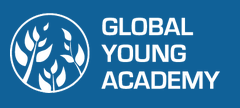Workshops are side events organised by GYA Working Groups in collaboration with partner organisations. Participant numbers are limited; registration for individual workshops is a prerequisite to participation.
All workshops will be held at the National Academies of Sciences, Engineering and Medicine building on 2101 Constitution Avenue, Washington, D.C.
See the full AGM & Conference programme here.
New Member Science Leadership Workshop
09:00 – 17:00 5 & 6 May 2024
This 2-day workshop aims to give new GYA members space to reflect together on how to be leaders in diverse contexts: in their research contexts, in the institutions and communities where they live and work, and in the GYA. The workshop will cover topics like effective and creative problem solving, collective leadership tools, personality differences and preferences in teams and cultural dexterity.
Participation by invitation only
Reforming Research Assessment to Foster an Open and Socially Responsive Research Culture: a GYA-CoARA event
13:00 – 15:00, 6 May 2024
Parallel workshop.
Collaboration between GYA Working Groups: Scientific Excellence, Trust in (Young) Scientists and Open Science
Science plays a pivotal role in the advancement of democratic societies, and there is a growing consensus advocating for its recognition as both a common good and a fundamental human right. To effectively fulfil this role, science necessitates the trust of society, the support of policy makers, and robust international collaboration, enabling the mobility of researchers and the free flow of knowledge. To encourage this, our responsibilities as researchers extend beyond the realm of academic publishing. They encompass science outreach, education, diplomacy, policy advocacy, entrepreneurship, and collaborations aimed at addressing global challenges or progress towards more equitable societies. However, this is hampered by current research assessment practices and the academic reward system, which perpetuate a ‘publish or perish’ research culture that confines the scope of science to academic publishing, fosters privilege-based biases, and prioritises quantity over quality, as well as prestige over integrity.
This dynamic, collaborative workshop will address these issues and more, involving three GYA working groups and the Coalition for Advancing Research Assessment (CoARA), which brings together a community of researchers and research enablers dedicated to reforming this perilous research culture.
GYA Contact: Yensi Flores Bueso
Maximum participants: 100
Registration for in-person participation is now closed.
Register here for online participation.
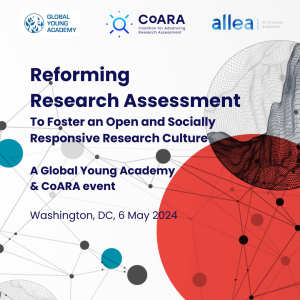
Click here to view this workshop's speakers
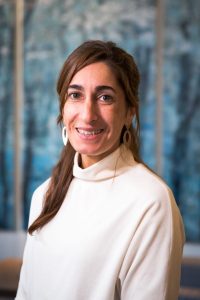
Luciana Balboa
GYA member (Institute of Experimental Medicine, Argentina)/CoARA Steering Board Member
Dr Luciana Balboa is an Infectious Diseases researcher at the Instituto de Medicina Experimental (IMEX – Institute of Experimental Medicine), which belongs to CONICET (Consejo Nacional de Investigaciones Científicas y Técnicas – Academia Nacional de Medicina) in Buenos Aires, Argentina. Her team aims to contribute to the improvement of our basic knowledge of the immune response against Mycobacterium tuberculosis, the causative agent of tuberculosis. She created the first French-Argentine International Associate Laboratory dedicated to the study of tuberculosis, especially in the context of HIV co-infection. In addition, she is a member of the Global Young Academy, co-chairs the Young Academy of Argentina, and is a member of the executive committee of IMEX at CONICET. She has recently joined the board of CoARA.
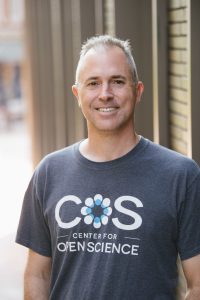
Brian Nosek
Co-founder and Executive Director, Center for Open Science
Brian Nosek co-developed the Implicit Association Test, a tool that greatly increased research and public interest in implicit bias. Dr Nosek co-founded three non-profit organisations: Project Implicit to advance research and education about implicit bias, the Society for the Improvement of Psychological Science to improve the research culture in his home discipline, and the Center for Open Science (COS) to improve rigour, transparency, integrity, and reproducibility across research disciplines. Dr Nosek is the Executive Director of COS and a professor at the University of Virginia. His research and applied interests are to understand why people and systems produce behaviours that are contrary to intentions and values; to develop, implement, and evaluate solutions to align practices with values; and to improve research credibility and cultures to accelerate progress.
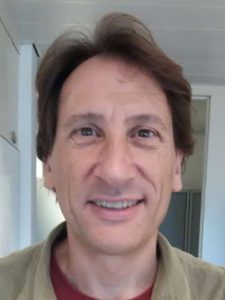
Ismael Ràfols
UNESCO Chair on Diversity and Inclusion in Global Science, Leiden University
Ismael Ràfols leads the UNESCO Chair on Diversity and Inclusion in Global Science at Leiden University’s Centre for Science Technology Studies (CWTS) in the Netherlands. He works on evaluation and science policy with approaches aimed at fostering epistemic pluralism, broadening participation, and widening the distribution of the benefits from science. Dr Ràfols has been involved in policy initiatives related to ‘responsible research assessment’, such as the implementation of UNESCO’s Open Science Recommendations, and in discussions on biases against research topics from the Global South in assessment and databases. He received an MSc in Science and Technology Policy from SPRU (Sussex University, UK), a PhD in biophysics from Tohoku University (Sendai, Japan) and was a postdoc in nanobiotechnology at Cornell University (USA).
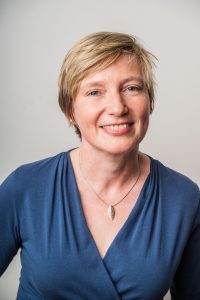
Véronique Kiermer
Chief Scientific Officer, Public Library of Science (PLOS); Member, US National Academy of Sciences Strategic Council on Research Excellence, Integrity, and Trust
Véronique Kiermer is the Chief Scientific Officer at PLOS, where she oversees the editorial department and the development of solutions to promote Open Science. Dr Kiermer has a PhD in molecular biology from the Université Libre de Bruxelles, Belgium. She was a postdoc in the laboratory of Dr Eric Verdin at the Gladstone Institutes (USA), after which she worked in biotechnology research and development (R&D) for gene therapy projects in the San Francisco Bay Area. She moved into publishing in 2004, first as the founding Chief Editor of Nature Methods, then as the Executive Editor for the Nature portfolio, before joining PLOS in 2015. She’s a proud alumnus of the ORCID Board, and she currently serves on the Board of Directors of Keystone Symposia, the Scientific Advisory Board of the EMBL-EBI Literature Services & Biostudies, and the NISO CRediT Standing Committee. Since 2021, she has been a member of the US National Academy of Sciences Strategic Council for Research Excellence, Integrity, and Trust.
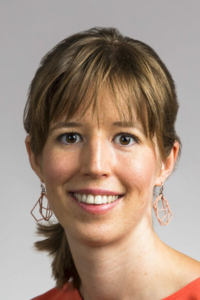
Karen Stroobants
Steering Board Member, CoARA
Dr Karen Stroobants is a policy adviser and consultant on research policy and strategy, with a specific focus on research culture. She combines roles as director of CultureBase Consulting and as lead policy advisor on research landscape & economy at the Royal Society of Chemistry. She was part of the team that drafted the Agreement on Reforming Research Assessment (ARRA) and is a Vice-Chair of the first Steering Board of the Coalition for Advancing Research Assessment (CoARA). Previously, Karen held roles at RAND Europe and the Royal Society, where she led the development of the narrative Résumé for Researchers that has since been introduced in the UK and inspired similar efforts in other countries. Karen moved to the UK initially as a Marie Sklodowska-Curie postdoctoral Fellow at the University of Cambridge. Prior to this, she obtained her PhD in chemistry at KU Leuven in Belgium.
Advancing Biosecurity: Promoting Responsible Research through the Tianjin Biosecurity Guidelines
13:00 – 15:00, 6 May 2024
Parallel workshop
IAP-funded project “Advancing Biosafety”
Join us for an exploration into bioethics and the code of conduct guiding bioscientists, with a particular emphasis on the significance of ethical research, especially for early-career scientists. Engage in scenario-based activities designed to foster open dialogue and address ethical dilemmas prevalent in bioscience research. This workshop offers a valuable platform to navigate the intricate landscape of biosecurity, ensuring that responsible scientific conduct is upheld from the early stages of your career. Consider how ethical considerations influence your research decisions as we explore practical applications of biosecurity principles. As a highlight, we’ll introduce a biosecurity videogame, serving to reinforce the Tianjin Biosecurity Guidelines Code of Conduct for Scientists through immersive simulated scenarios. This event represents the culmination of the IAP-GYA Advancing Biosafety project, bringing together science academies, esteemed experts, and enthusiastic participants. Together, we’ll deepen our understanding of ethical practices in bioscience, working towards fostering a safer and more responsible scientific community. Join us for enlightening discussions and the opportunity to drive positive change in our field.
More information at http://advancingbiosecurity.science.
Moderator: Felix Moronta Barrios, GYA Co-Chair.
Maximum participants: 40
Registration is now closed.
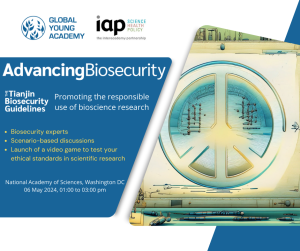
Click here to view this workshop's speakers
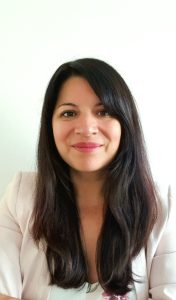
Clarissa Rios
GYA member (Political Affairs Officer, United Nations Office for Disarmament Affairs (UNODA)
With a Ph.D. in Molecular Biology and a Master’s in Biomedicine & Neuroscience, Dr Rios Rojas has dedicated her career to bridging the gap between scientific innovation and effective policymaking. Her global engagement spans influential platforms such as the World Economic Forum, the G20, the European Commission and diverse UN offices, where she has honed expertise in diverse topics, from women’s economic empowerment to global catastrophic risks. She has substantially contributed to initiatives promoting international security and managing risks associated with AI and bioweapons. As a Political Affairs Officer at the United Nations Office for Disarmament Affairs (UNODA), her focus lies in safeguarding humanity against weapons of mass destruction, including chemical, biological, and nuclear weapons, with an emphasis on risks and their convergence with other emerging technologies. She contributes to implementing the Biological Weapons Convention and continues her passionate pursuit at the forefront of foresight, science diplomacy, and global risk management, all with the overarching goal of fostering a safer, more peaceful world.
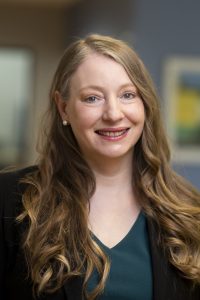
Gigi Gronvall
Senior Scholar, Johns Hopkins Center for Health Security & Associate Professor, Johns Hopkins Bloomberg School of Public Health
Dr Gigi Gronvall is a Senior Scholar at the Johns Hopkins Center for Health Security and an Associate Professor at the Johns Hopkins Bloomberg School of Public Health. She has led national and international efforts to improve biosafety and biosecurity policies, focusing on the occupational health of laboratory workers. Dr Gronvall is the author of Synthetic Biology: Safety, Security, and Promise. In the book, she describes what can be done to minimize technical and social risks and maximize the benefits of synthetic biology, focusing on biosecurity, biosafety, ethics, and US national competitiveness—important sectors of national security. She has also written about the scientific response to the COVID-19 pandemic, the contested origin of SARS-CoV-2, and the implications for national and international security. She is currently a member of the International Security Advisory Board (ISAB) which advises the US State Department, and the National Institutes of Health (NIH) Novel and Exceptional Technology and Research Advisory Committee (NExTRAC). From 2009-2010, she served as the Science Advisor for the Commission on the Prevention of Weapons of Mass Destruction Proliferation and Terrorism. Dr Gronvall received a B.S. in biology from Indiana University, Bloomington, and a Ph.D. from Johns Hopkins University.
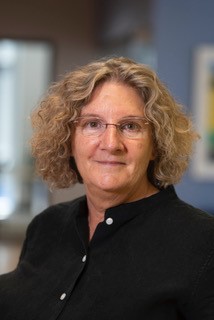
Nancy Connell
Senior Scholar, US National Academies of Science, Engineering, and Medicine (NASEM)
Dr Nancy Connell is a Senior Scholar at the US National Academies of Science, Engineering, and Medicine (NASEM) in the Division of Policy and Governmental Affairs. Trained in microbial genetics at Harvard, Dr Connell focuses on advances in life sciences and technology and their application to developments in biosecurity, biosafety, and biodefense. She has had a long-standing interest in regulatory policies associated with biocontainment work and dual-use research of concern. Dr Connell is a past member of the Board on Life Sciences and currently serves on the Committee on International Security and Arms Control. She is a National Associate of NASEM, having served over 15 committees. Among other national and international committees, she served on the US National Science Advisory Board for Biosecurity. Dr Connell was Senior Scientist at the Johns Hopkins Center for Health Security and Professor in the Department of Environmental Health and Engineering at the Johns Hopkins Bloomberg School of Public Health from 2018-2021. From 1992-2018, Dr Connell was an investigator in microbial genetics and drug discovery at Rutgers New Jersey Medical School (NJMS), finishing her long career there as Professor in the Division of Infectious Disease and Director of Research in the Department of Medicine.
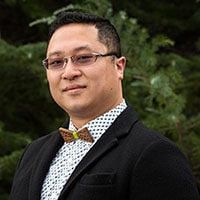
Yong-Bee Lim
Deputy Director of the Converging Risks Lab, Council on Strategic Risks (CSR)
Dr. Yong-Bee Lim is Deputy Director of the Converging Risks Lab, an institute of the Council on Strategic Risks (CSR), and Biosecurity Projects Manager for CSR. Previously, he was a Deputy Director and Fellow at the Nolan Center, where he wrote extensively on biological risks and solutions. He is also an Editorial Fellow at the Bulletin of the Atomic Scientists. Dr. Lim’s academic work examined how emerging technologies and non-traditional actors such as the Do-It-Yourself (DIY) Bio community affect the benefits and risks associated with the life sciences and other science disciplines. He previously worked as a researcher in a number of U.S. government institutions, including the Office for At-Risk Individuals, Behavioral Health, and Community Resilience (HHS/ASPR, the National Defense University’s Center for the Study of Weapons of Mass Destruction (DoD), and at the Center for Global Security Research at Lawrence Livermore National Laboratory (DoE). Further, his interactions with the DIYBio community have offered him unique opportunities in building bridges between the safety, security, and citizen science communities. Dr. Lim holds a doctorate and a master’s degree in Biodefense with a specialization in Terrorism and Homeland Security Studies, and a bachelor’s degree in Psychology from George Mason University.
Science Diplomacy Forum
15:30 – 17:30, 6 May 2024
Parallel workshop
Science Diplomacy in the Americas Working Group
As GYA members we often complain about the lack of real opportunities to be in contact with diplomats, to find synergies and to make our voice heard. Since the next AGM will be in Washington DC, USA, we will be in a diplomatic hub that will give us access to numerous embassies around the world. The Science Diplomacy Forum aims to be a space where GYA members, former members and local ECRs interested in science diplomacy can meet and reflect on different topics together with invited diplomats from different countries that have representations in DC. The programme aims to showcase relevant GYA activities while learning about the current science diplomacy initiatives of the invited diplomatic representations (in presentation format), and about aspects such as what the daily work of a science diplomat looks like, how many different forms it can take, and what kind of skills this field of action requires. The second part consists of reflecting and exchanging ideas on the most effective ways to incorporate young scientists in science diplomacy initiatives while collaborating with embassies. For this we will have different dynamics such as large and small group discussions using SLP tools, and a final open discussion. Some members will be recorders of the event and we will produce a report to distribute to diplomats, including a toolkit to encourage future rapports. We hope the interactions between members and diplomats during the group dynamics with SLP tools allow future interactions and also create a positive view of scientists as allies to work with, including the GYA.
Maximum participants: 50
Registration is now closed.
Science Advice Masterclass: A Global Transdisciplinary Approach
15:30 – 17:30, 6 May 2024
Parallel workshop
Science Advice Working Group
This workshop will focus on international science advice from the perspective of a cross-disciplinary collaboration at the science-policy interface, with the opportunity to engage in exercises addressing real-life problems with peers and experts in science for policy and diplomacy.
Maximum participants: 50
Registration is now closed.
AI Horizons: Empowering Sustainable Science for a Better Tomorrow
13:00 – 14:30, 8 May 2024
Lunchtime parallel workshop
Science Education for Youth Working Group
This workshop explores the pivotal role of Artificial Intelligence (AI) in advancing science and driving sustainable development. In an era marked by unprecedented challenges, AI stands as a transformative force, propelling us towards innovative solutions and a more sustainable future. After an introduction on AI and Intelligent Systems, the program will delve into various scientific areas, to show the societal and economic impact AI is having across domains. Massive datasets, inference and reasoning algorithms, complex phenomena modelling unveil hidden patterns and accelerate scientific discovery. AI-driven technologies are also making education more accessible and personalized, bridging gaps in learning opportunities and fostering inclusive, lifelong learning. It is however important to ensure that AI advancements benefit all segments of society, minimizing biases, and promoting inclusive, equitable progress. The workshop aims to inspire collaboration, foster innovative thinking, and empower participants to harness the potential of AI for a better tomorrow. Join us on this journey through the intersection of AI and sustainability, where together, we chart a course towards a future where science, empowered by AI, leads the way to a more sustainable and equitable world.
Maximum participants: 50
Registration is now closed.
How Might Diverse Minds Come Together to Build a Future People Want? A workshop on foundational values for collaboration and supporting at-risk scholars
13:00 – 14:30, 8 May 2024
Lunchtime parallel workshop
Collaboration between GYA At-Risk Scholars Initiative and Addressing Systemic Discrimination Working Group.
This workshop introduces participants to the values of mutual respect and active listening, which underlie the UN Universal Declaration of Human Rights and meaningful collaboration with diverse people. Participants will reflect on how such values might inspire their personal approach to intercultural communication and conflict resolution. The GYA At-Risk Scholars Initiative will also be introduced including its needs, goals, outcomes and partners.
Maximum participants: 50
Registration is now closed.
Women in Science for Peace
13:00-14:30, 9 May 2024
Lunchtime workshop
Women in Science Working Group
Funded by a grant from the Henry Luce Foundation.
Facilitator: Lindsay Burr, Yarbrough Group
This workshop aims to bring together early to mid-career Women in Science and interested participants, with the primary goal to equip them with enhanced conflict resolution and negotiation skills, recognizing that scientists can be instrumental in fostering peace not only within scientific communities but also in broader societal contexts. We aim to empower scientists and researchers with the tools and knowledge necessary to handle conflicts and disputes effectively, fostering a more inclusive, diverse, and peaceful scientific community. The workshop will address conflict resolution strategies, case studies and practical exercises.
Registration is now closed.
